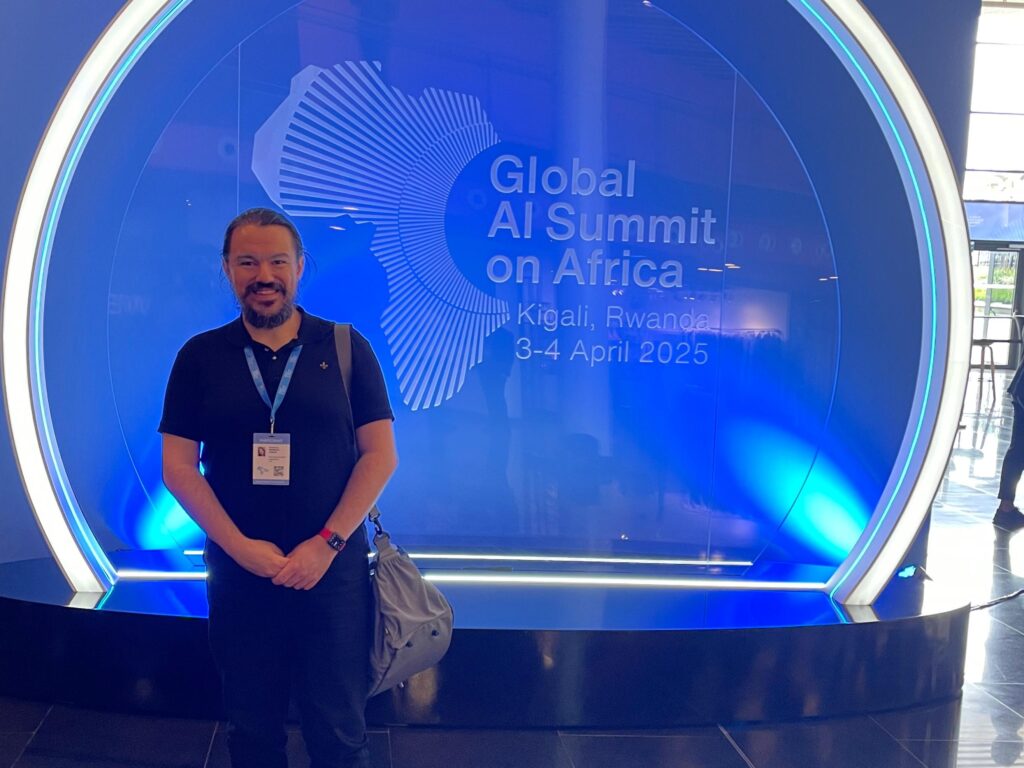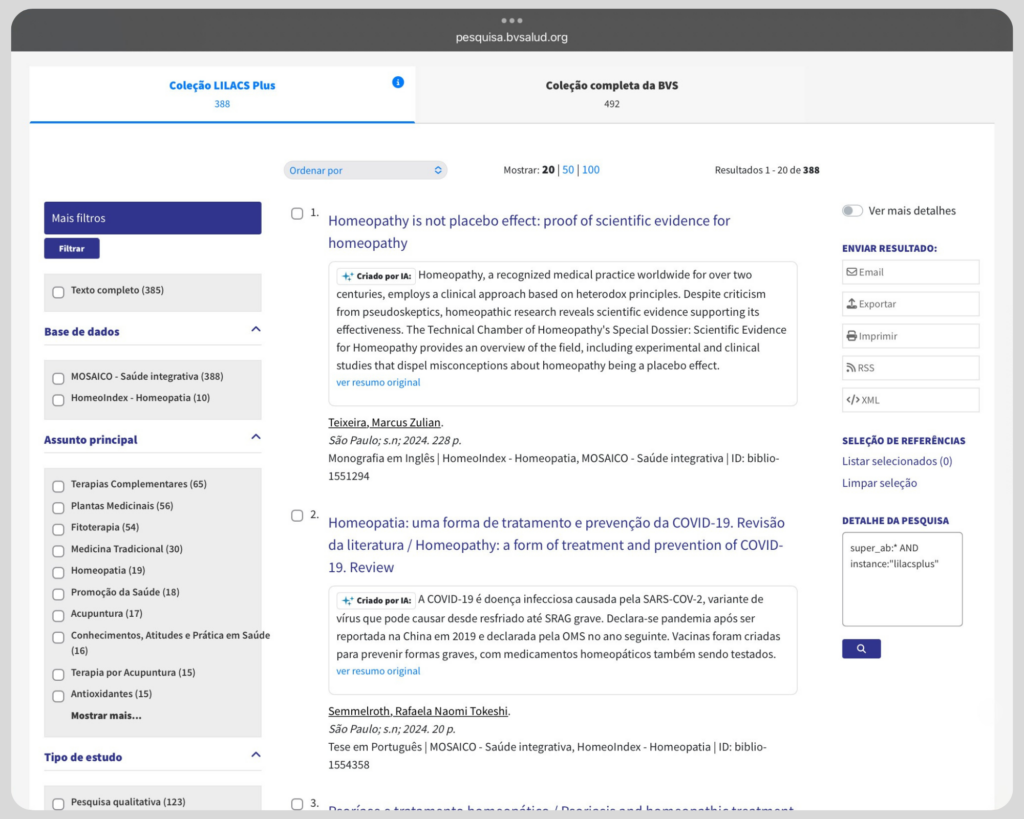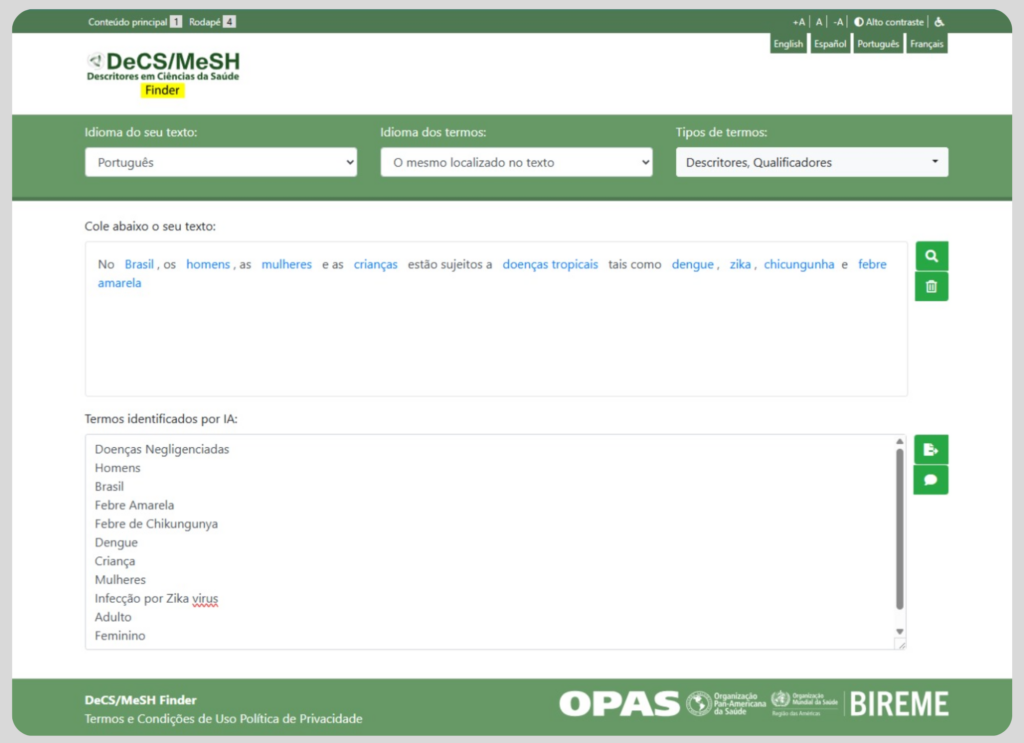BIREME/PAHO/WHO participated in two strategic meetings held in Rwanda on April 2-4, 2025, the Kigali Meeting with the Gates Foundation’s Grand Challenges Artificial Intelligence (AI) Community, and the Global AI Summit on Africa, organized by C4IR Rwanda in coordination with the World Economic Forum. The events brought together researchers, government representatives and international experts to debate the role of AI in promoting development with equity.
Francisco Barbosa Junior, an AI specialist from BIREME’s Development team, represented the Center at the activities, presenting technological innovation experiences for digital libraries, such as the Super Summaries and the DeCS Finder AI. Developed by BIREME to boost the digital transition of the Virtual Health Library’s (VHL) products and services, the resources stood out for operating with specialized language models and accessible infrastructure.
On April 2, the Kigali Meeting with the Grand Challenges AI Community brought together researchers and experts covered by the Gates Foundation’s Artificial Intelligence Grand Challenges fellowships, for an agenda of knowledge exchange, project demonstrations and networking between representatives of the Global South. Then, on April 3 and 4, the group joined participants in the Africa AI Global Summit, including government leaders, technology experts and representatives of multilateral agencies, in debates on the role of AI in tackling social challenges, with an emphasis on public health and digital equity.
The program included technical sessions, project pitches, discussion circles, panels and comments, with names such as Bill Gates (Chairman of the Gates Foundation), Sam Altman (CEO of OpenAI), Faure Gnassingbé (President of the Republic of Togo), Paul Kagame (President of the Republic of Rwanda), Paula Ingabire (Rwandan Minister of Innovation) and Trevor Mundel (President of Global Health at the Gates Foundation), who highlighted the urgency of expanding access to sustainable and locally relevant digital technologies.

In focus: digital equity and data sovereignty
During the events, BIREME’s experience drew attention for the technical efficiency and economic viability of its artificial intelligence solutions, developed to operate in contexts of limited infrastructure. Francisco Junior presented two main products, the Super Summaries and the DeCS Finder AI.
The Super Summaries were designed with the aim of enabling the delivery of results using large language models (LLMs) in environments with limited computing resources. “We use a reduced and specialized version of Meta’s LLaMA model, which runs on our own servers, with local control and low energy consumption, which is essential for public institutions like ours,” explains Junior. The project consists of the automated generation of short summaries, between 34 and 63 words, based on the abstracts of scientific articles. The versions already produced are available for consultation in the MOSAICO database, accessible through the VHL. To develop the tool, the BIREME team applied fine-tuning and prompt engineering techniques, adjusting parameters such as temperature and thematic focus to ensure quality and accuracy. “This process is a first step towards the development of more robust solutions, such as an automated system to display synthesis of evidence,” adds Junior.

DeCS Finder AI was designed to improve the user experience when indexing health scientific texts. The tool is based on Annif, an open-source system developed by the National Library of Finland to automate the indexing of documents by subject, using natural language processing (NLP) and machine learning (ML). Adapted by BIREME’s team, the model analyzes texts and identifies the most suitable DeCS descriptors to represent scientific articles, abstracts and full texts. In addition to facilitating semi-automatic indexing according to the LILACS methodology, DeCS Finder AI is able to process texts in different languages and export results in compatible formats for submission to databases and journals.

Converging paths for south-south cooperation
The meetings also revealed the challenges faced by the African continent in terms of access to computing infrastructure and linguistic expertise in AI. “Today, only 2% of global AI server capacity is installed on the African continent, which significantly limits the region’s technological autonomy. Added to this is an important cultural barrier, the diversity of local languages and dialects, which are often absent from large language models, makes it difficult to adapt and effectively use these technologies in real contexts,” says the expert.
BIREME’s participation in the events in Kigali highlighted not only the potential of technologies developed from Latin America, but also the importance of inclusive and sustainable approaches to artificial intelligence and the promotion of equity between countries and regions of the world. Sharing experiences with other institutions from the Global South highlighted the need for investment in infrastructure and public policies to guarantee the technological sovereignty of developing countries. Specialized models with local control, such as those adopted by BIREME, have been recognized by experts as a viable and scalable alternative for contexts with limited resources.
Besides the technical presentations, the Summit also marked a step forward in digital governance on the African continent with the launch of the African Declaration on Artificial Intelligence. The document proposes principles for the ethical, responsible and inclusive use of AI, with special attention to linguistic diversity and technological autonomy – themes that also guide BIREME’s work in Latin America and the Caribbean. The convergence of values between the African and Latin American initiatives reaffirms the strategic role of South-South cooperation in building a digital transformation that is fairer, more accessible and centered on the population’s needs.